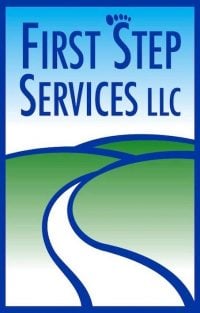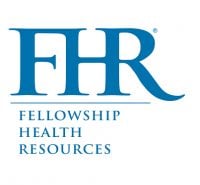UNC Horizons - Wake County Health Department Outpatient
Drug Rehab Center in Raleigh, North Carolina
UNC Horizons - Wake County Health Department Outpatient in Raleigh, NC is an Addiction Treatment Facility offering a wide variety of services tailored to meet the needs of individual patients and ensure comprehensive care for those suffering from addiction and substance abuse.
About This Raleigh, NC Facility
UNC Horizons - Wake County Health Department Outpatient, located in Raleigh, North Carolina, is a dedicated addiction treatment facility that has been providing comprehensive care to individuals struggling with substance abuse and mental health issues. With a focus on opioid addiction, alcoholism, and dual diagnosis, UNC Horizons offers a range of services tailored to meet the unique needs of each patient.
• Comprehensive care: UNC Horizons provides a holistic approach to treatment, addressing both substance abuse and mental health concerns.
• Evidence-based therapies: The facility employs proven therapeutic methods to ensure the most effective treatment outcomes.
• Medication assistance: Patients can receive help managing their medications as part of their individualized treatment plan.
• Continuum of care: UNC Horizons offers various levels of care, including detox, inpatient, outpatient, and aftercare support.
Accredited by the Joint Commission on Accreditation of Healthcare Organizations (JCAHO), UNC Horizons adheres to the highest standards of patient care. The facility accepts most private health insurance plans, making treatment more accessible to those in need.
UNC Horizons specializes in treating opioid addiction, substance abuse, dual diagnosis, drug addiction, mental health issues, and alcoholism. The facility provides a range of treatment methods, including individual and group counseling, evidence-based therapies, relapse prevention, and peer support services. With various levels of care available, patients can receive the appropriate level of support throughout their recovery journey.
Genders
Ages
Modality
Additional
Accreditations

JCAHO
Conditions and Issues Treated
Substance abuse is the excessive use of any type of drug. This includes alcohol, medications and illegal drugs. Substance abuse is treated with a combination of physical and mental treatments. UNC Horizons - Wake County Health Department Outpatient patients detox and follow up with therapies that target the underlying cause of the addiction.
Opioid addiction is one of North Carolina‘s most prominent forms of addiction. Drugs, including heroin, oxycontin, and fentanyl, are the most common. To relieve pain, or ease other ailments, they are professionally prescribed, but they are often abused because they and the feelings they give are addictive.
Addiction is treated by detoxifying the body, so the medications’ chemicals are no longer impacting the individual. UNC Horizons - Wake County Health Department Outpatient offers therapies to correct behavior and target the root of the problem are supplemented during and throughout treatment.
Levels of Care Offered
This center offers a variety of custom treatment tailored to individual recovery. Currently available are Aftercare Support, Drug Rehab, Dual-Diagnosis, Outpatient, with additional therapies available as listed below.
In outpatient programs at UNC Horizons - Wake County Health Department Outpatient, the Raleigh resident can live with their family while continuing with their job or studies. Treatment includes educating the patient on drug abuse, medications, and counseling sessions at the individual or group level.
Aftercare support refers to the follow-up care provided after the initial rehab program. The quality of aftercare support plays an important role in preventing relapses and sustains recovery. Aftercare support at UNC Horizons - Wake County Health Department Outpatient is personalized according to the needs of the patient in North Carolina.
UNC Horizons - Wake County Health Department Outpatient‘s Therapies & Programs
Substance abuse does a number on an individual’s relationship with other people, particularly in marriage. Spousal relationships bear the brunt of alcohol and drug dependence. Therefore, it becomes critical to submit the relationship to couples therapy to prevent straining it further. Most programs only zero in on the individual with substance addiction without factoring in the importance of the other half’s emotional support.
However, some facilities, like UNC Horizons - Wake County Health Department Outpatient in Raleigh, North Carolina, offer couples therapy options to manage intimate partnerships amid the recovery process. Other couples-focused treatment plans can provide the patient and their partner tools to get things back to normal, support each other, and the patient’s sobriety.Group Therapy is a type of counseling that occurs between a bunch of strangers. These groups are suitable for patients who are not confined in a treatment facility, but group sessions are also common in inpatient rehab programs. Group therapy is led by a trained individual at UNC Horizons - Wake County Health Department Outpatient in Raleigh, NC and consists of members from different stages of recovery.
The goal of group therapy sessions is to foster hope and a sense of belonging, share information, and learn coping mechanisms. It also helps to have people who can relate to what you’re going through. Good behaviors can also be contagious, and participants can learn from one another.
Unresolved trauma is often a key reason why many patients resorted to substance abuse. Trauma could be physical abuse, sexual abuse, war, natural disasters, divorce, accident, loss of a loved one, etc. If trauma is the primary cause of substance abuse, then both issues must be addressed.
Dialectical Behavior Therapy (DBT) is an improved version of Cognitive Behavioral Therapy (CBT) DBT is a treatment of choice for people being treated at UNC Horizons - Wake County Health Department Outpatient whom are suffering from self-harming behaviors. Conditions such as obsessive-compulsive disorder and borderline personality disorder also benefit from DBT.
Cognitive Behavioral Therapy (CBT) is an approach and method in psychotherapy. UNC Horizons - Wake County Health Department Outpatient asks people to investigate how their thoughts, including habitual, negative, and inaccurate ways of thinking affect behaviors. CBT is based on the idea that rigid, inflexible ways of thinking cause people to have a limited ability to cope with stress
Payment Options Accepted
For specific insurance or payment methods please contact us.
Additional Details
Specifics, location, and helpful extra information.
Raleigh, North Carolina 27610 Phone Number(919) 250-3834 Meta DetailsUpdated April 15, 2024
Staff Verified
What else do people call UNC Horizons – Wake County Health Department Outpatient?
People have occasionally also searched for “UNC Horizons in North Carolina”
Patient Reviews
There are no reviews yet. Be the first one to write one.
Raleigh, North Carolina Addiction Information
North Carolina ranks 29th in the nation for overall substance abuse. Many of the drugs abused in the state are illicit, and many of these are opioids. Prescription opioids are readily available due to the high rates of medical workers prescribing them. The number of prescriptions has increased tenfold since the 1980's. Opioid overdoses are the most common type of death in North Carolina.
Raleigh, NC has one of the highest rates of drug-related deaths in the country. 10% of Raleigh residents report current illicit drug use. The majority of overdose deaths occurred among people ages 35-54. A variety of different types of therapy are available in Raleigh, North Carolina. This includes individual therapy, group therapy, and family therapy.
Treatment in Nearby Cities
- Rutherfordton, NC (191.8 mi.)
- Garner, NC (5.4 mi.)
- Columbus, NC (206.6 mi.)
- Mars Hill, NC (222.3 mi.)
- Conover, NC (147.9 mi.)
Centers near UNC Horizons - Wake County Health Department Outpatient
The facility name, logo and brand are the property and registered trademarks of UNC Horizons - Wake County Health Department Outpatient, and are being used for identification and informational purposes only. Use of these names, logos and brands shall not imply endorsement. RehabNow.org is not affiliated with or sponsored by UNC Horizons - Wake County Health Department Outpatient.









